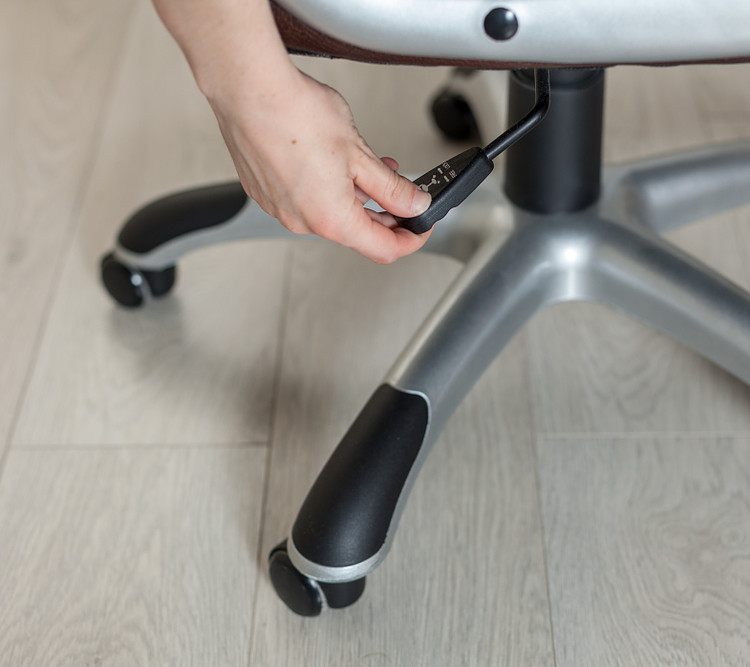One of the most fascinating and useful features of an office chair is height adjustment.
When you pull the adjustment lever on the chair, the mechanism of the gas cylinder, hidden between the base and the seat of the chair, makes the chair go up or down.
The chair cylinder plays a crucial role in ensuring the effective ergonomics of a chair. If this part is not properly lubricated, you will have to deal with an annoyingly squeaking chair that will not be easy to adjust.
As a practical, long-term fix, lubricating and oiling every cylinder component with the right type of lubricant is necessary.
Keep reading to learn all about the importance of chair cylinders, the best way to keep them as good as new, and how you can easily deal with a squeaky chair.
Table of Contents
Why Is My Office Chair Squeaking?
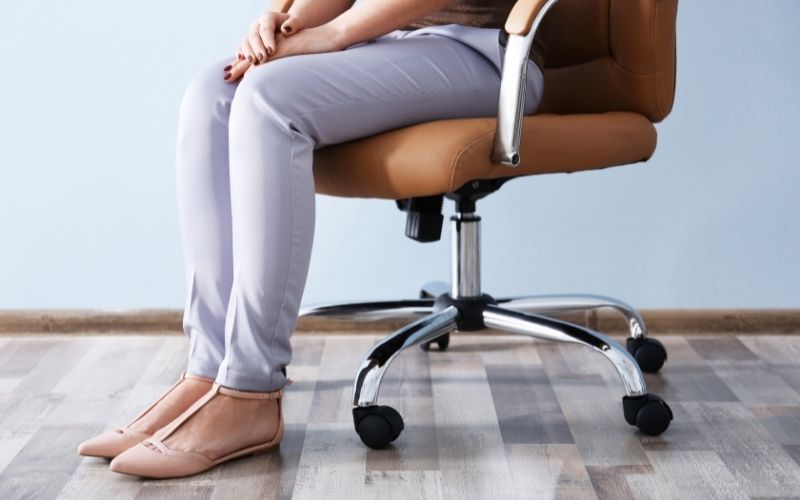
Have you been noticing your chair squeaking and creaking every time you sit on it?
This would most likely be happening when you try to lean back on the chair or pull the chair’s lever to adjust the chair’s height.
One of the major reasons for your chair making these annoying noises is rusting on different parts of the chair, such as the cylinder, the backrest, or the seat.
Another reason is that the screws and bolts on your chair are loose. This can make your chair unstable, often causing strange noises when you try to adjust the chair.
If the lubrication on different parts has worn off or the bolts are not tight enough, it can create friction between the different small parts of the chair and the chair will end up squeaking.
Importance Of Maintaining My Office Chair Cylinder
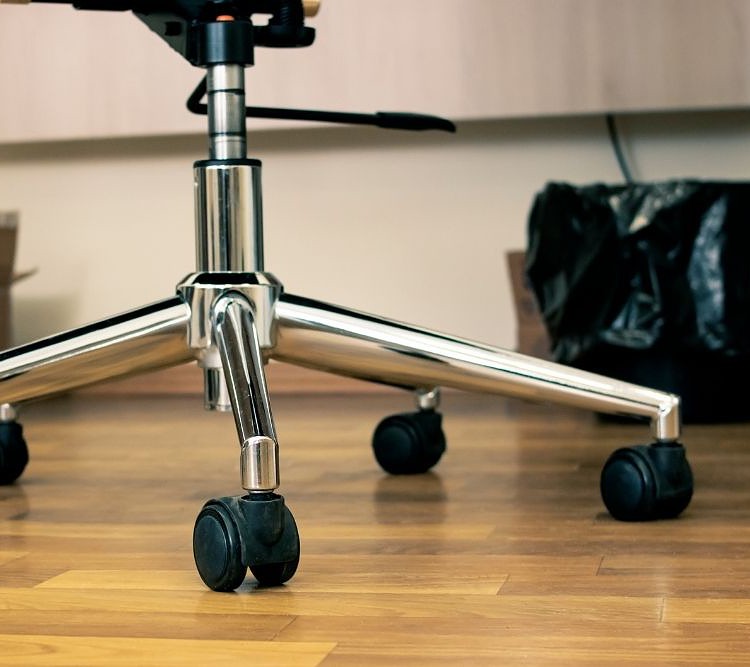
No one likes the squeaky noises an office chair makes, especially when you have a lot of work to do and are unable to adjust the height of the chair to your liking.
This is why maintaining, cleaning, and lubricating the office chair cylinder every once in a while is as important as cleaning the chair itself.
Despite being one of the most important components of a chair, the cylinder is often neglected. Here’s why regular maintenance of the chair cylinder is important:
- The cylinder is a critical component of an office chair which allows the easy upwards and downwards movement of the chair.
- If the chair cylinder is not properly cleaned and maintained, it can decrease the ergonomic efficiency of the chair. You won’t be able to move the chair to your preferred height to sit comfortably with your legs resting on the floor.
- Over time, the cylinder may accumulate dirt and debris that requires regular cleaning to keep it at its optimum efficiency.
- With regular use, your office chair (and the cylinder) will undergo considerable wear and tear. Without proper cleaning and maintenance, your chair will deteriorate and lose its capacity to withstand the adequate weight.
Factors To Consider Before Lubricating The Chair Cylinder
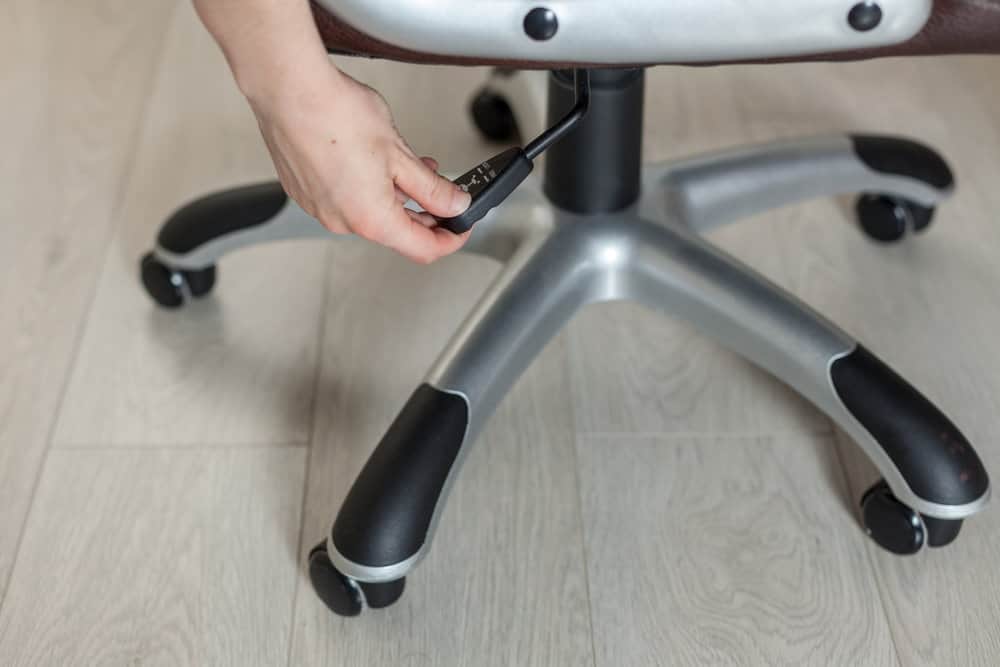
Before you roll up your sleeves to lubricate your office chair’s cylinder, let’s take a look at some important considerations you should know about:
- Do not use harsh cleaners and lubricants on the cylinder. Make sure you read the cleaning manual or look up the chair manufacturer’s instructions to ascertain which cleaner would be ideal for the cylinder.
- Make sure to tighten the screws, bolts, and other bearings of the chair cylinder every once in a while. This will ensure the smooth working of the chair in the long run.
- Before applying any lubricant to the cylinder, make sure you clean it with a vacuum cleaner to remove any dirt or debris that may have accumulated on it.
How Do I Lubricate My Office Chair Cylinder?
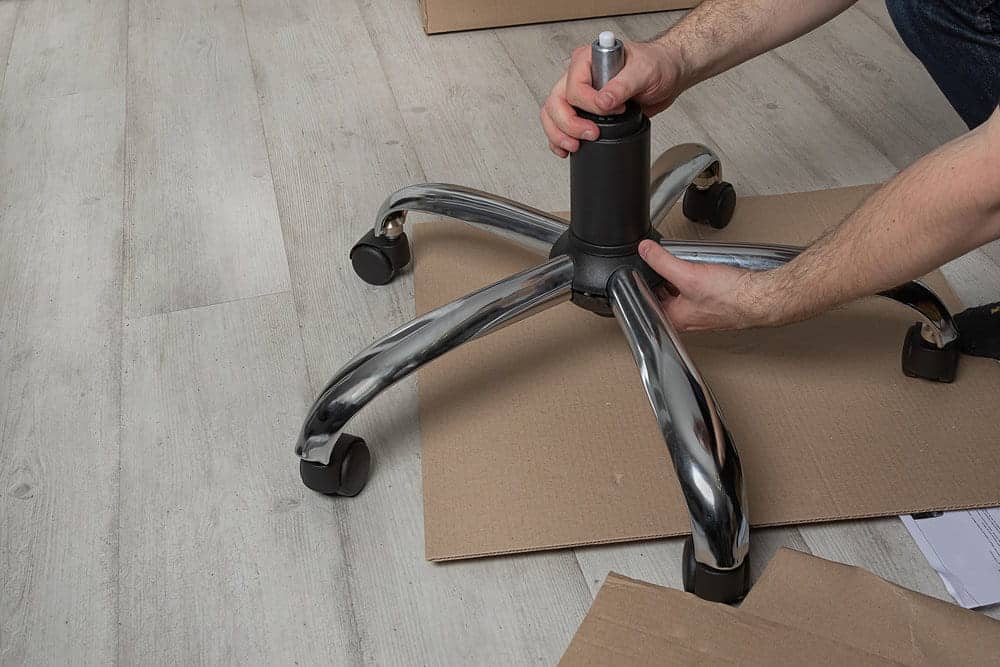
Lubricating your office chair cylinder is not as difficult as you might imagine. And now that you know how important it is to frequently lubricate your office chair cylinder to ensure smooth movement, take a look at the simple steps to follow on how to lubricate it efficiently:
- The first step is to identify whether it’s the lack of lubrication that is causing the chair to squeak or is hindering its movement.
- Turn the chair upside down for easy access to work on the gas cylinder. If the chair is small to medium-sized, you can keep it on a table but make sure to cover the table with a cloth or newspaper first. If the chair is bulky, recline the backrest and place it directly on the floor.
- To protect the fabric around the gas cylinder from getting damaged, cover it with a tissue, paper towel, or even kitchen towel before using the lubricants.
- Take your choice of lubricant and use the nozzle to try to reach deep into the cylinder. The lubricant oil should penetrate every small crevice of the cylinder.
- Spray a generous amount of the lubricant into the barn of the cylinder and lubricate it from within.
- You can spray a small amount of the lubricant in the openings present on the base of the chair, too.
- Using the tissue, make sure to cover the entire exposed exterior of the cylinder with the leftover lubricant.
- To let the lubricant reach the bottom parts of the cylinder, allow the chair to rest in the position for an hour.
- After an hour, turn the chair to its normal position and then sit and lean back to check whether the squeaking has stopped.
This video on how to fix a squeaky office chair is also a good guide to follow.
Conclusion
Sometimes, even if you can adjust the height of your office chair without any issue, you may come across the chair making creaking sounds.
This is a cue for you to lubricate and oil the chair’s cylinder. In rare cases, you may even need to replace the cylinder.
The office chair, although often overlooked, is a vital element of an office. How comfortable, ergonomic, and convenient your chair is to use will largely depend on how well-operating and functioning the chair cylinder is.

My name is Vance, and I am the owner of To Ergonomics. Our mission is to improve your workflow by helping you create a supportive and welcoming environment. We hope that you’ll find what you’re looking for while you’re here.

